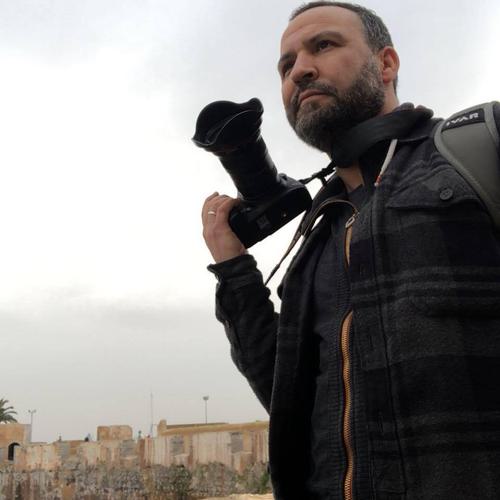
Rachid Aadnani
Senior Lecturer in Middle Eastern Studies
I teach Arabic literature and language
I joined the Wellesley community in the summer of 2002 to teach Arabic language and literature and to help build a program for Middle Eastern Studies. In addition to teaching the Arabic language, I also teach a 300 level seminar on themes of Resistance and Dissent in North Africa and the Middle East. I also teach a survey course on Arabic literature in translation. For the last two years I have served on the advisory board of the Comparative Literature Program.
My research interests focus on the intersection of language and power/politics with a special focus on contemporary cultural and linguistic issues in North Africa and the Middle East. My Ph.D. research focused on translation theory and the ways in which language can be used as both a tool and medium of resistance in the work of Maghrebi writers Mohammed Khair-Eddine (writing in French), Assia Djebar (writing in French), and Mohammed Choukri (writing in Arabic). My own linguistic background and background in linguistics has largely shaped my academic interests. I grew up speaking both Tamazight (at home and with family) and Moroccan Arabic (with my friends and classmates), and French since the age of seven. English came into the picture much later (last three years of high school), followed by a few years of Russian and Spanish. Some of my graduate research on issues of language and dissidence is published in articles such as "Resistance as a Linguistic Practice in Mohammed Khair-Eddine's Légende et Vie d'Agoun'chich" (Race, Gender & Class, 2001) and "Beyond Raï: North African Protest Music and Poetry" (World Literature Today, 2006). My current research is centered around writers who are exploring/creating new forms of writing that challenge the restrictive and confining existing literary cannons in the Maghreb. Along with my continuing research on the literatures of the Maghreb, I am also working on a project on protest music/poetry in Algeria, Morocco and Tunisia.
While in graduate school I started exploring the world of photography and have contributed photographs to print and online publications both in the United States and my native Morocco. I am currently working on a photography exhibition to be hosted by the MIT libraries in Fall 2020.
Education
- B.A., Universite Moulay Ismail (Morocco)
- M.A. École Normale Supérieure (Morocco)
- M.A., Dartmouth College
- Ph.D., Binghamton University
Currently teaching
Intermediate Arabic
ARAB201
A continuation of ARAB 101-ARAB 102. The course takes students to a deeper and more complex level in the study of the Arabic language. While continuing to emphasize the organizing principles of the language, the course also introduces students to a variety of challenging texts, including extracts from newspaper articles, as well as literary and religious materials. Students will be trained to work with longer texts and to gain the necessary communicative skills to prepare them for advanced-level Arabic.
-
A study of translation in theory and in practice, in its literal and many metaphorical senses, and of the vast multilingual world in which translation takes place. Among the possible topics: translation of literary texts, translation of sacred texts, the history and politics of translation, the lives of translators, translation and gender, translation and colonialism, machine translation and Google Translate, endangered languages, the representation of translation in literature and film, invented languages. Students taking the course at the 300 level will do a substantial independent project: a translation, a scholarly inquiry, or a combination of the two.
-
A study of translation in theory and in practice, in its literal and metaphorical senses alike, and of the multilingual world in which translation takes place. Topics: translation of literary texts, translation of sacred texts, the history and politics of translation, the lives of translators, translation and gender, machine translation, adaptation as translation. Students taking the course at the 300 level will do a substantial independent project: a translation, a scholarly inquiry, or a combination of the two.